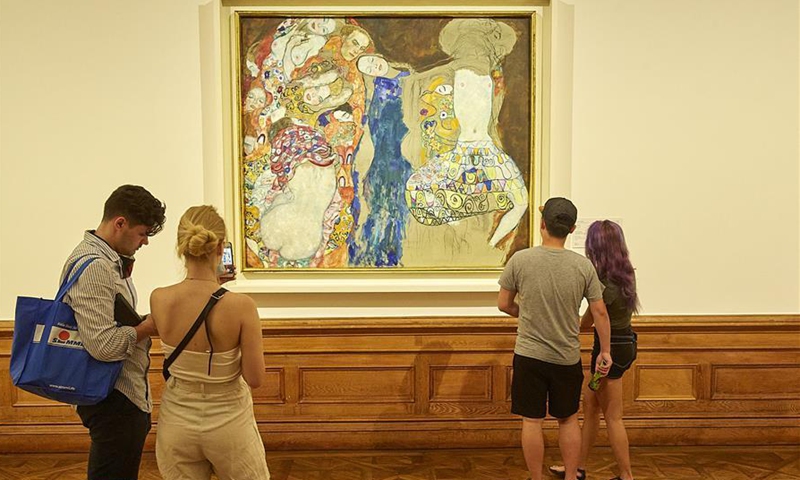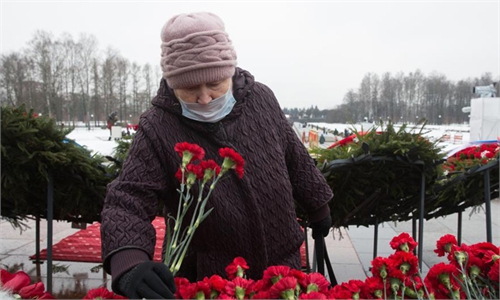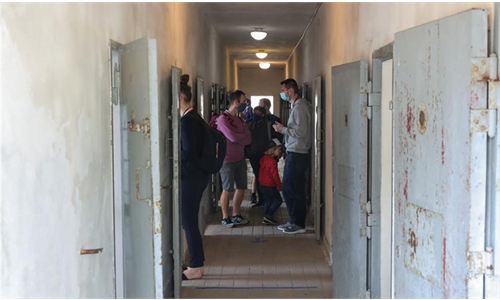
People view The Bride by Gustav Klimt at the Upper Belvedere in Vienna, Austria, on July 1, 2020. The Upper Belvedere reopened to visitors on Wednesday after a temporary closure due to the COVID-19 pandemic. (Photo by Georges Schneider/Xinhua)
France will return a painting by Gustav Klimt to the Jewish family from which it was looted by Austrian Nazis in 1938.Rose Bushes Under Trees, painted by the Austrian artist around 1904-05, will be returned to the family of Holocaust victim Nora Stiasny, France's culture minister Roselyne Bachelot said on Monday.
"The restoration of looted items is an ardent obligation. It is the honor of the Republic to do so, the honor of France," she said.
The painting was bought in 1911 by Stiasny's uncle, a Jewish-Austrian collector named Viktor Zuckerkandl.
She was forced to sell it very cheap shortly after the Nazis came to power in Austria in 1938 at a time when Jewish families were being frozen out of the economy.
It was bought by Stiasny's former lover, Philipp Haeusler, who had joined the Nazi party and managed to hide his past after the war.
Stiasny died in 1942 along with her husband and son. It is not clear whether they were in the Polish ghetto of Izbica or the Belzec concentration camp.
France acquired Rose Bushes Under Trees from a Swiss gallery in 1980 for its soon-to-open Musee d'Orsay in Paris, knowing nothing of its violent history.
"The decision we've taken is obviously difficult. It means removing a master-work from the national collection that is the only painting by Gustav Klimt that France owns," said Bachelot.
She added that it had been a challenging process due to the destruction of evidence and the erosion of family memories.
The work will go to the descendants of Stiasny's sister, Hermine Mueller-Hofmann, who managed to escape the Holocaust.
AFP



